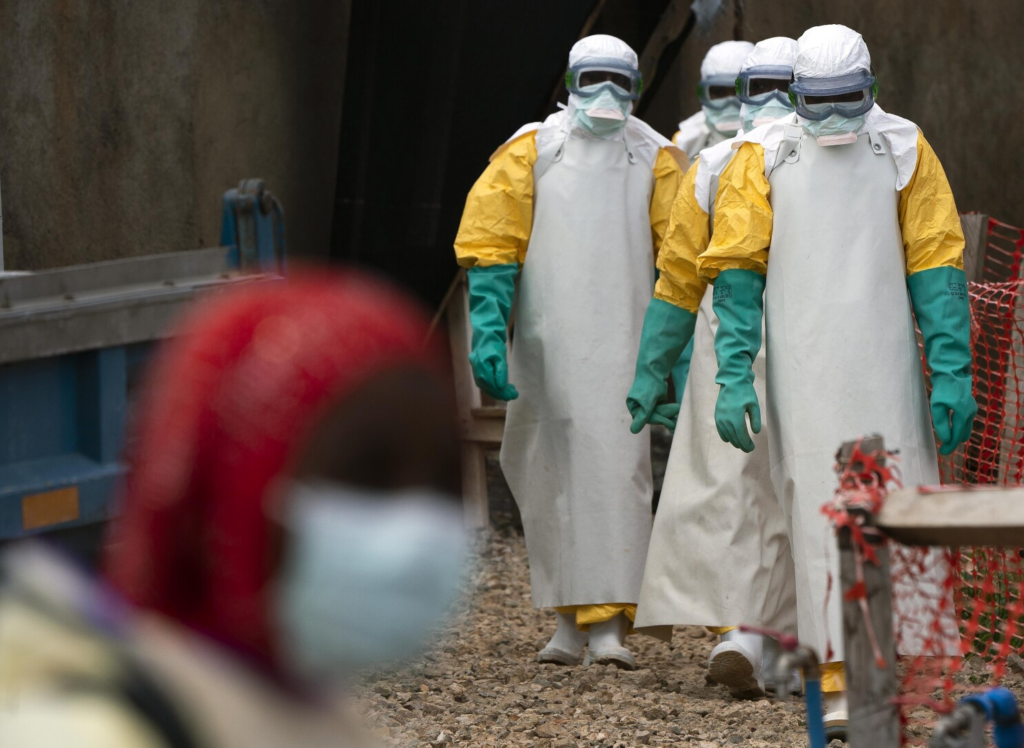
The Federal Government has intensified screening and monitoring at all points of entry as health authorities in the Democratic Republic of Congo (DRC) battle a new outbreak of the Ebola virus disease.
Dr. Akpan Nse, Director of Port Health Services at the Federal Ministry of Health and Social Welfare, told Saturday PUNCH on Friday that additional staff had been deployed to strengthen border surveillance. He said the measure was crucial as Nigeria remains at risk of importation due to heavy travel traffic with the DRC.
Health officials in Congo this week confirmed an outbreak in Kasai Province, where 28 suspected cases and 16 deaths—including four health workers—have been reported as of September 5. Laboratory tests at the National Institute of Biomedical Research in Kinshasa confirmed the Zaire strain of the Ebola virus.
The World Health Organization (WHO) announced that it had released $500,000 from its Contingency Fund for Emergencies to support the response. “We’re joining rapid response teams to trace contacts and find cases; we’re collecting and testing samples, and we’re providing technical expertise,” WHO Director-General Dr. Tedros Adhanom Ghebreyesus said. He added that 2,000 doses of Ebola vaccine prepositioned in Kinshasa would be deployed to protect health workers and contacts.
Ebola virus disease, first identified in the DRC in 1976, is a rare but often fatal illness. It spreads to humans from infected animals such as fruit bats and through direct human-to-human contact with blood or bodily fluids. The DRC has recorded 15 previous outbreaks, including a major one in Equateur Province in 2022 that was contained within three months.
Dr. Nse said Nigerian officials were on high alert. “Every inbound traveller coming from Congo to Nigeria is thoroughly screened, and we collect their medical history through mandatory forms,” he explained. “Even if passengers transit through Congo, they must undergo screening. With support from WHO, we have recruited more staff to enhance surveillance.”
He added that private organisations had partnered with the government to ensure thermal scanners at airports and seaports remain functional.
Public health experts in Nigeria urged vigilance. Associate Professor Oladipo Kolawole of Adeleke University said coordination across ministries and agencies was essential. “Everybody coming into the country, especially from DR Congo, must declare where they are coming from at the point of entry, and we must keep our surveillance system well-tightened,” he said, noting that the Nigeria Centre for Disease Control and Prevention had expanded laboratory capacity in Lagos.
Virologist Dr. Moses Adewumi of the University College Hospital, Ibadan, warned that strict travel protocols and early detection were critical. “We must be deliberate about monitoring points of entry, especially airports and land borders, so that no suspected case slips through undetected. Early detection is the key to prevention,” he said.
At the Lagos University Teaching Hospital, infectious disease specialist Dr. Iorhen Akase stressed that the risk of transmission arises mainly when patients are symptomatic. He urged communities to remain alert. “If you have somebody in your community who is ill, let them go to the hospital. Anybody who is symptomatic, let them just go to the hospital to be checked,” he said.
The Ebola outbreak in DR Congo comes as Central and West Africa grapple with overlapping crises, including cholera, malnutrition, and population displacement. Nigerian authorities say the country’s surveillance network, strengthened since the 2014 Ebola scare, remains the frontline defense against another deadly importation.
